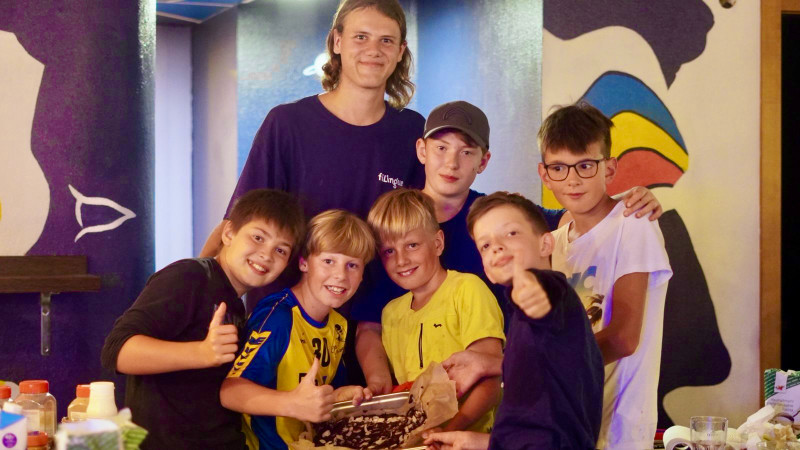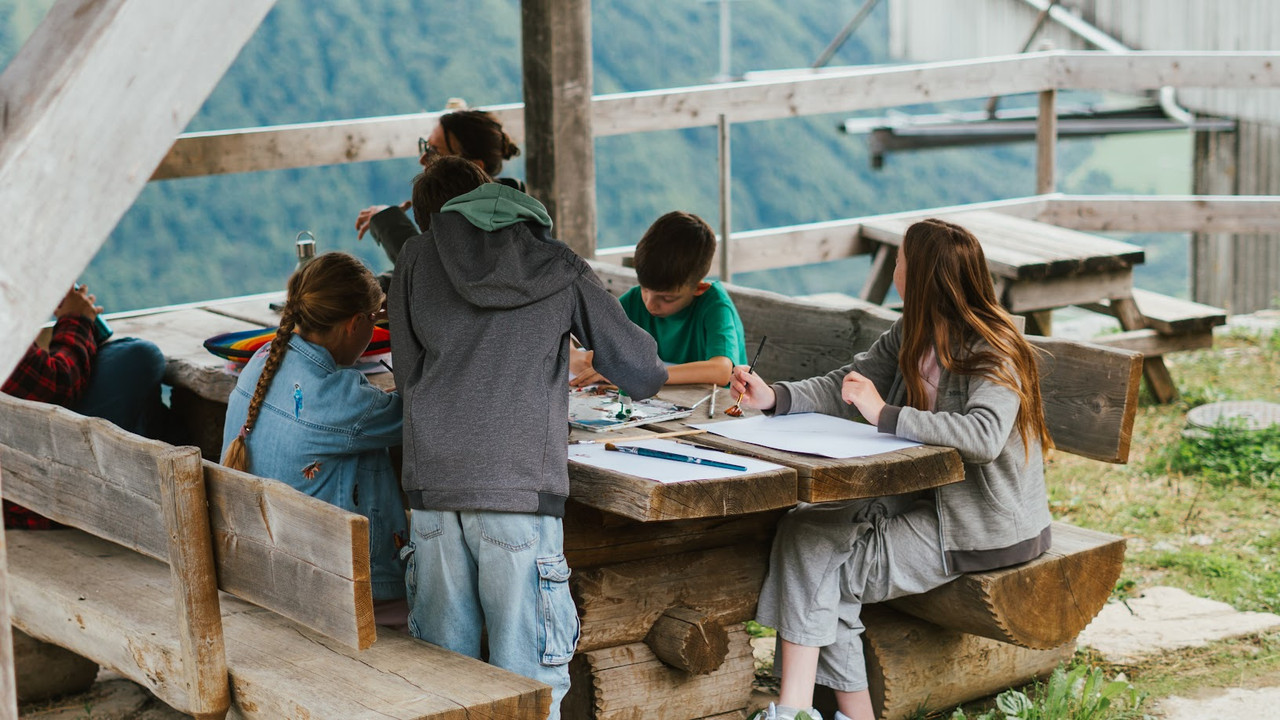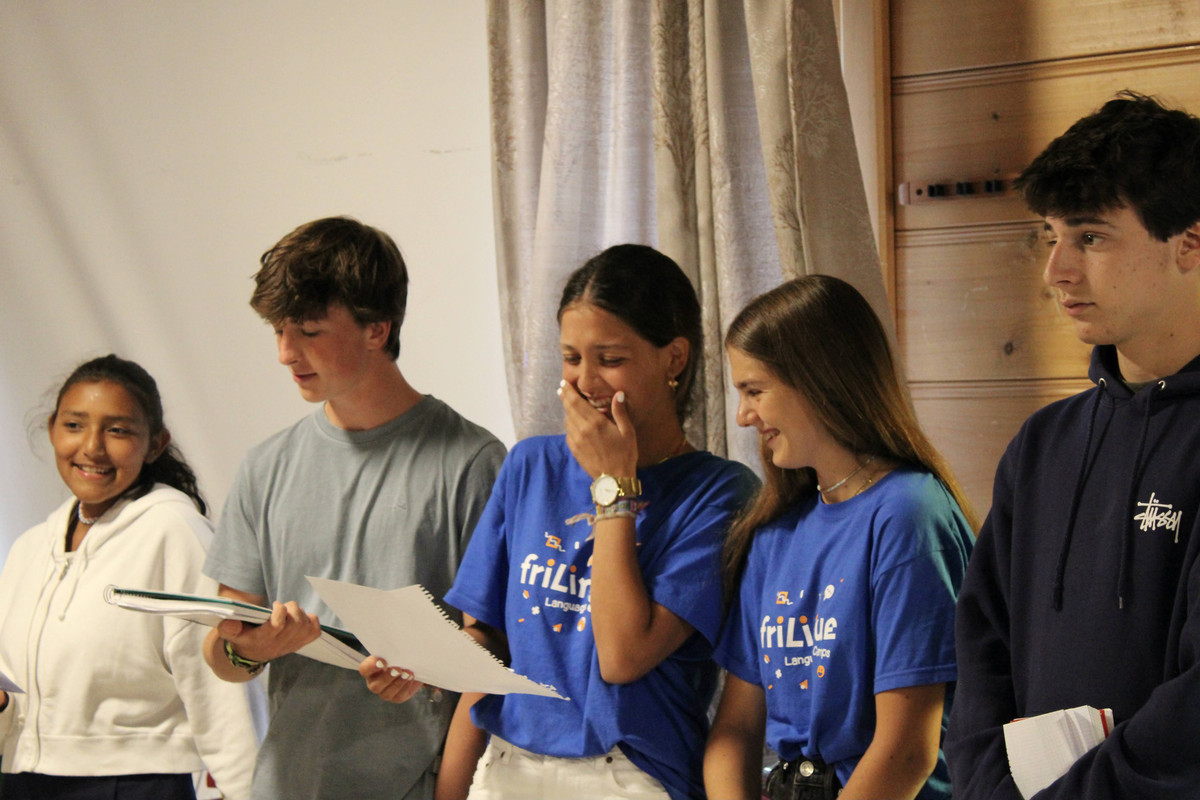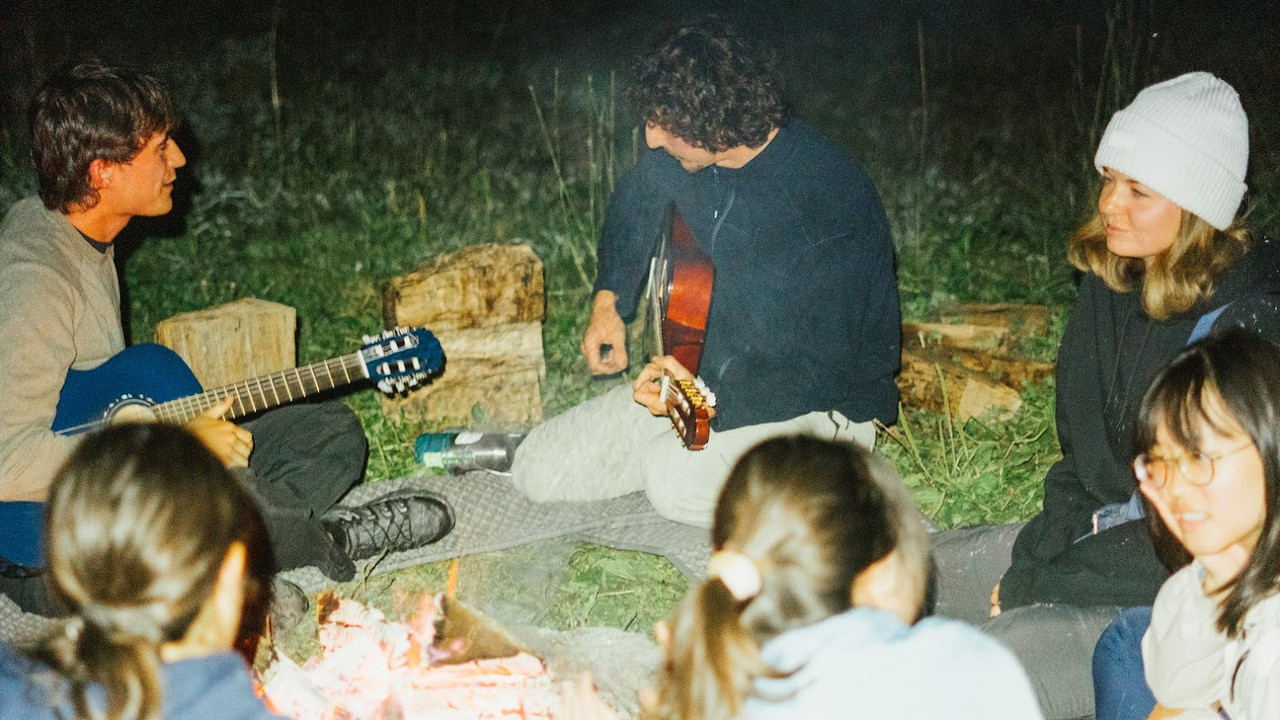
Language camp for shy children: good or bad idea?
"My child is shy, is it really a good idea to send them to a language camp?" This is a question we hear regularly at friLingue. And the answer might surprise you: yes, it's often even an excellent idea! But not just any way, and certainly not just anywhere.
Shyness isn't what we think it is
Let's start by debunking a common misconception: shyness isn't a dead end. It affects 15 to 20% of children and often hides wonderful qualities. Shy children are generally very observant, good listeners, and develop remarkable empathy. They're often the ones who become the group's confidants thanks to their sensitivity and discretion. The problem isn't shyness itself.
It's the label we stick on them. When a parent tells their child "you're shy," even with the best intentions, they box them in. At friLingue, we prefer to say: "They just need a little time to get acquainted." This nuance changes everything.
Why a language camp can transform a shy child
Before explaining the "how," let me tell you Catherine's story. Now a 57-year-old mother, she was "excessively shy" as a child. For her, each new group represented "real torture." Yet, from ages 6 to 18, she spent part of every summer at camp. And guess what? She has wonderful memories of it: first crushes, friends, activities, counselors...
How is this possible? Because a well-designed camp can be "a very enriching experience for autonomy, socialization, and self-confidence," as explained by Agnès Florin, Professor Emeritus of Child Psychology at the University of Nantes. The secret is that everything depends on the quality of supervision and activities offered.
Small groups that make all the difference
In a class of 25 or 30 students, shy children get lost in the crowd. They wait for others to speak up, make themselves forgotten, and go home with the same shyness as when they started. Sometimes even reinforced, because they didn't dare participate. In our language camps, classes take place in groups of 3 to 6 students maximum. At that number, it's impossible to hide. But most importantly, children are no longer afraid of being judged. The teacher has time to attend to each one, to adapt their pace, to acknowledge even the smallest progress. It's in these small groups that most friendships are born. Teachers trained in language learning know how to handle introverted students. They have the patience and tools not to rush, to encourage without forcing, to create a space where making mistakes is allowed. This professional kindness makes all the difference.

A playground for self-confidence
Shyness, fundamentally, is a lack of self-confidence. A child who doubts their abilities will struggle to reach out to others, for fear of rejection or ridicule. A language camp is a succession of small victories that build this confidence. The child realizes they can learn a foreign language - victory! They discover they enjoy theater or rock climbing during workshops - another victory! They participate in a sports tournament, go on a mountain hike, successfully complete a recipe in a cooking workshop... Each time, they step a little outside their comfort zone and tell themselves: "Actually, I'm capable." The more they accumulate these positive experiences, the more legitimate they feel. And naturally, they become more comfortable approaching others.
The power of a new context
At language camp, no one knows the child. They have no label, no reputation to carry. It's a blank slate where they can reinvent themselves. The little one who has been "the shy kid in class" since kindergarten can simply be themselves, without that burden. Many shy children thrive more in new situations than when surrounded by people who already know them. Because they no longer have to play the role expected of them.

Will my child make friends at camp?
That's THE question keeping you up at night. We understand. Here's what really happens:
From the very first evening, our counselors and teachers organize icebreaker games. We never force a child to interact, but we create situations where it's easy to do so. Small games that require collaboration, activities where they get to know each other without pressure.
In shared rooms, that's where the magic often happens. Unpacking suitcases together, chatting before bed, laughing at something silly... These informal moments create natural bonds. For shy children, it's easier than approaching someone in the playground.
During activities, shy children don't need to search for what to say. They participate in the game, sports activity, or creative project. Conversation comes naturally around the shared action. It's much easier than "making conversation" in a vacuum.
Evening free time is precious. Some children need to decompress alone in their room, and that's perfectly fine. But participating in evening gatherings, board games, discussions around the campfire... it's in these relaxed moments that true friendships are formed.
What we consistently observe: shy children who come to us don't stay alone. Because other children are also looking to create connections. And often, shy kids recognize each other and naturally gravitate together.

What makes the difference: the size and approach of the camp
Not all camps are equal for an introverted child. A huge camp with 200 teens can be overwhelming. A shy child will get lost there and stay in their corner.
At friLingue, our groups are intentionally small. Each child is seen, recognized, and supported. Counselors know everyone's first name by the second day. This individual attention changes everything.
Our approach? We focus on the shy child's strengths rather than their difficulties. We value their listening skills, sense of observation, and sensitivity. We give them responsibilities suited to their personality. Some become the group's photographers, others help organize games... Everyone finds their place.
The transformations we've observed
Arthur, 11 years old, didn't dare say hello on the first day. He stayed back, observing others from afar. By the end of the week, he had organized a show with three other participants for the closing evening. His mother couldn't believe it.
Léa, 13 years old, wrote to us a few months after her stay: "Before camp, I thought I was terrible at languages and that no one would want to be my friend. Now I know that's not true. I've kept in touch with two girls from camp and I finally understood that I could speak English."
These aren't miracles. They're simply children who had the right environment to flourish. A caring framework, small groups, trained adults, and time to approach situations at their own pace.
Tips for preparing your shy child
If you decide to enroll your introverted child in a language camp, here's how to support them:
Involve them in the choice. Let them choose certain activities from the program. When children have a say, they feel more in control and less anxious. Discuss the stay together, look at photos from previous editions, highlight activities they might enjoy. This simple involvement changes their perception: they're not "subjected to" it, they're participating in the decision.
Start gradually if it's their first experience. If your child has never slept away from you, a two-week camp can seem like an eternity. At friLingue, our one-week camps are perfect for a first time. You can also first try a weekend at the grandparents' or at a friend's house. The idea is not to put the child off from the very first experience.
Present concrete benefits. Does your child have a friend who's also going? Mention it, that can be real support. Talk about fun activities, discovering a region, the opportunity to learn a language while having fun. Be enthusiastic without overdoing it.
Don't dramatize the departure. Yes, it's an important step, but present it as a positive adventure, not as an ordeal to overcome. Your stress transmits to your child.
Avoid directives like "make an effort to talk" or "try to approach others." That only increases the pressure. Say instead: "You're going to meet nice young people, take the time you need to get acquainted."
Highlight their qualities. Remind them that being observant and a good listener are assets. That their sensitivity is a strength. That they don't need to be the most talkative to be appreciated.
Stay positive but realistic. Tell them that the first few days might be a bit unsettling, that it's normal, and that it gets easier afterward. It's reassuring to know that what you're feeling is normal.
Never force without explanation. Forcing a child to leave without explaining why can create a lack of trust in you. They have the right to give their opinion on what concerns them. Listen to their fears, take them seriously, and explain why you think this stay would be good for them.
Trust the team. If you've chosen a serious camp with small groups, the counselors and teachers know how to handle shy children. They do this job out of passion and are experienced.
What if it doesn't work out?
We're not going to lie to you: not all children experience camp the same way. Some will take longer to adapt. Others might need a second stay to really flourish.
But what we can tell you is that "failures" are extremely rare in well-supervised small camps. Children who leave disappointed generally come from structures that are too large where they felt lost, or from camps where the team wasn't attentive enough.
At friLingue, if a child is struggling, we notice quickly. We adapt, we support, we find solutions. Because our goal isn't just for them to learn the language. It's for them to have a wonderful week and come home having grown.
So, language camp for shy children: yes or no?
Yes, a thousand times yes.
Provided you choose the right camp. A small group, a trained team, a caring approach, and time for your child to find their place at their own pace.
Your child's shyness isn't an obstacle. It's even often in these camps that the most beautiful transformations occur. Because a shy child who gains self-confidence is magnificent to see.
Friendships formed at language camp are often the strongest. Because they're created in a context of kindness, far from the sometimes harsh codes of the school playground. Many of our participants stay in touch for years.
So if you're still hesitating, ask yourself this question: what would be worse? Your child spending a somewhat uncomfortable week before flourishing? Or them remaining trapped in their shyness because they never had the opportunity to discover they could overcome it?
Language camp won't transform your shy child into the life of the party. That's neither the goal nor desirable. But it will give them the tools to feel good about themselves, to dare express themselves in a foreign language, and to make friends who appreciate them as they are.
And that's already enormous.